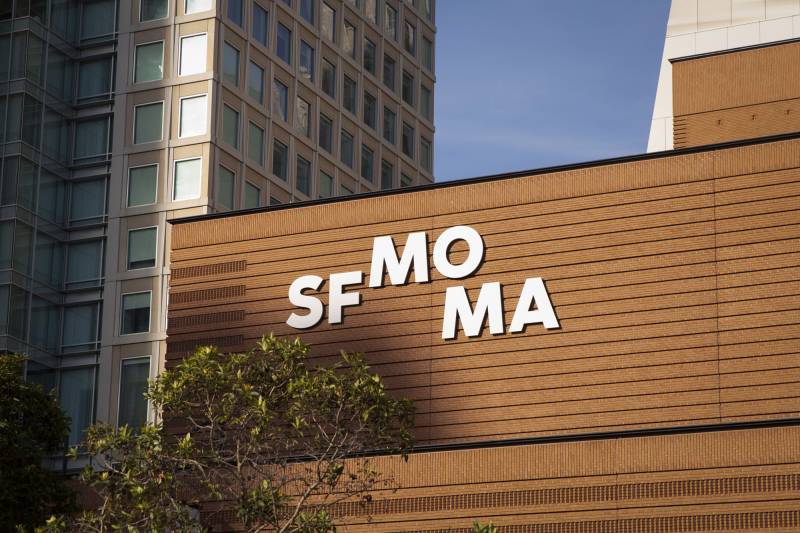On Wednesday morning, a group of workers at the San Francisco Museum of Modern Art (SFMOMA) published an open letter to museum leadership, urging them to take a public stance in solidarity with Palestinians and join a boycott of Israeli institutions.
“We write as San Francisco Museum of Modern Art employees, in the absence of any statement from our institution’s leadership, to affirm our solidarity with the Palestinian people as they confront decades of violent oppression and apartheid and to condemn Israel’s devastating and ongoing siege of Gaza,” opens the letter addressed to Director Chris Bedford, the board of trustees and the executive committee.
The letter cites SFMOMA’s previous statements on diversity, equity and inclusion; in 2021, the museum published a statement that reads “museums and cultural organizations are not (and shout not be) neutral.” Arguing that SFMOMA leadership’s silence on the humanitarian crisis in Gaza undermines their stated values, the employees wrote, “We believe the museum is losing credibility and relevance as a result.”
The letter asks SFMOMA to adopt four commitments: give a platform to Palestinian voices in commissions, collaborations and exhibitions, and vow not to censor pro-Palestinian work; create space for internal dialogue; call for an immediate and permanent ceasefire; and join the Palestinian Campaign for the Academic and Cultural Boycott of Israel (PACBI).
PACBI is part of the Boycott, Divestment, Sanctions movement, which calls for a boycott of Israeli institutions until its government ends its siege and occupation of Gaza and the West Bank, gives equal rights to ethnically Palestinian citizens of Israel and allows Palestinian refugees to return to their homelands. The SFMOMA workers’ letter underscores that PACBI is not a boycott of individuals based on their identity, and that the workers also stand against antisemitism.


